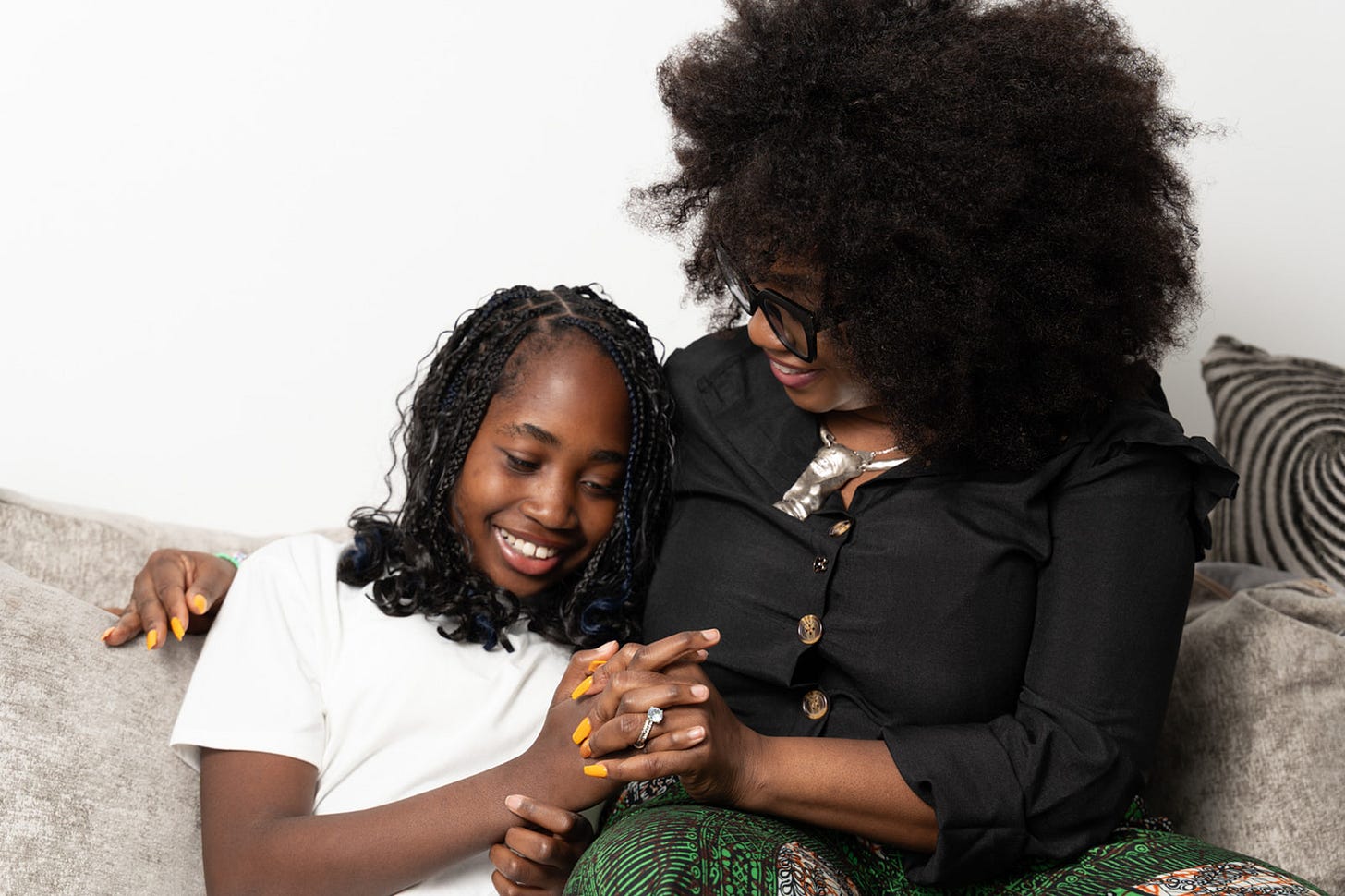Why “Spare the Rod” Doesn’t Mean What You Think
And why it’s time African parents gave that proverb a little side-eye
Let’s be honest, if African childhoods had a soundtrack, it would be the soft-but-deadly slap of a slipper hitting tile. A classic. Grammy-worthy, really.
Whether it was the belt, the wooden cooking spoon, a broom, or (God help us all) the rogue flying remote, many of us grew up with "discipline" that was... let's just say, enthusiastic. And always justified with that same infamous phrase that had more power than the United Nations:
“Spare the rod, spoil the child.”
A proverb so popular, it could’ve been embroidered on every African auntie’s cushion. But here’s the thing, what if I told you that it doesn’t mean what we think it means? What if, in fact, we've all slightly misunderstood it?
Let’s unpack that.
The Rod Was Never Meant to Hurt
The phrase comes from Proverbs 13:24:
“Whoever spares the rod hates their children, but the one who loves their children is careful to discipline them.”
Now before anyone starts reaching for their belt in biblical defence, hold on.
In those days, the rod wasn’t some gladiator-style punishment tool. It was a shepherd’s staff. You know, those long, bendy ones they use to guide sheep. Shepherds didn’t chase down sheep like they were on an episode of Gladiators. The rod was used to lead, nudge, and protect.
No good shepherd went around battering their flock. Because, spoiler alert: the sheep would scatter. Same applies to our children. Use the rod too harshly and instead of respect, you’ll nurture resentment, fear, and the fine art of silent rebellion - something many of us mastered well before we hit puberty.
The rod symbolised careful oversight, not violence. A shepherd who beat their flock would lose them.
So if we’re taking this proverb seriously, and literally - the real takeaway is that loving parents should be like shepherds: guiding with presence and patience, not power and punishment.
Flashback: “You Will Understand When You Have Your Own”
Raise your hand if your mum ever said this after a thorough butt-whooping.
👋🏾
There I was, 10 years old, crying over my math homework (which, to be fair, did look suspiciously like witchcraft), and my mother, in peak Nollywood mode, declared:
“I’m doing this for your own good. You think I like beating you?”
Reader, did I think that? Absolutely. Especially when she removed her slipper with the precision of a trained assassin.
But here’s the thing - most of our parents genuinely believed pain would teach us something. And yes, maybe we learned not to repeat certain behaviours. But we also learned how to cry quietly. How to hide mistakes. How to say “yes ma” while plotting resistance in our diaries.
We learned fear - not wisdom.
Discipline Doesn’t Mean Torture
Let’s clear something up:
Discipline ≠ Punishment.
The word “discipline” shares its root with “disciple” - to teach, to guide. It’s not about asserting control. It’s about equipping our children to navigate life, even when we’re not there to watch them (which, eventually, we won’t be - hello, adulthood).
And yes, kids absolutely need boundaries. We’re not saying raise feral TikTok stars. But they also need safety, softness, and grace. Especially in a world where emotions run deep, and the pressure to “be perfect” starts alarmingly early.
And While We’re Here… It’s Not Just a Christian Thing
This isn’t just a conversation for church folk. Other faiths have similar sayings that have also, over time, been taken down the “discipline equals pain” road.
In Islam, for example, the Prophet Muhammad (PBUH) taught discipline through gentle instruction and compassion. Jewish teachings also emphasise correction with love, not harm. The principle of guiding with care is echoed across many belief systems - it’s just, shall we say, selectively interpreted at times.
So this Easter season (for those who celebrate), or in the spirit of post-Ramadan reflection, what if we extended that same theme of renewal and grace to our parenting?
No need for sermons. Just a simple shift in perspective: maybe the rod isn’t something to swing. Maybe it’s something to lean on.
Okay... But What Now?
If you’re a parent reading this, especially one who’s trying to reparent yourself while raising actual children - I see you. We see you.
It’s messy. It’s loud. It’s full of days where you open your mouth and your mother’s voice comes out and you think, “Oh Lord, I am her.”
But also? It’s beautiful. Every time you choose connection over control, curiosity over criticism, and calm over chaos, you’re building something new. Something your inner child would’ve thrived under.
So let’s retire “spare the rod” as our go-to parenting philosophy. Let’s reclaim it as a call to lead with love, not govern with fear.
Final Thought
Our children are not goats (no matter how wildly they run at bedtime).
They’re not wild animals to be tamed.
They’re fully-formed humans. Tiny, dramatic, high-volume humans, but humans nonetheless.
They don’t need rods. They need us.
Our presence. Our patience. Our protection.
The kind that doesn’t fly across the room with slipper velocity.
So this period (Post Ramadan and Easter) whether you're breaking bread, breaking fast, or just breaking generational habits, let that be your guiding light:
Speak life. Lead with love. Break the cycle.
And maybe, just maybe… keep the remote on the table and the slipper on the feet. 😄






Excellent Post! Love and agree with every point you make!
Hi Anne-Rose, this was such a refreshing take. I didn't know we were connected via WhatsApp, small world. 💗